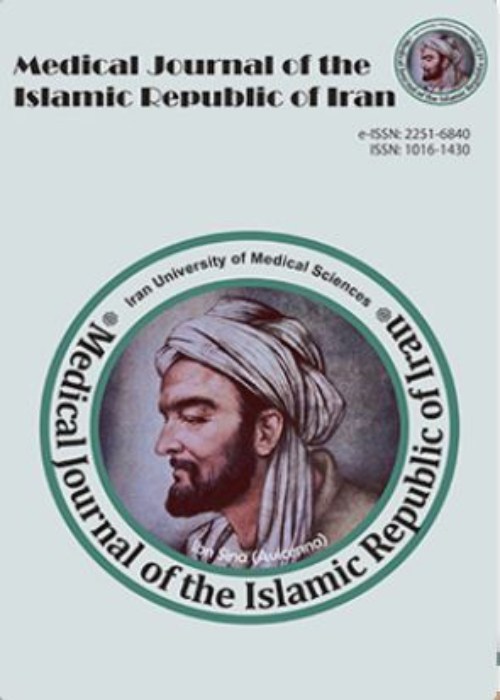MOLECULAR STUDY OF PKD1 & PKD2 GENES BY LINKAGE ANALYSIS AND DETERMINING THE GENOTYPE/PHENOTYPE CORRELATIONS IN SEVERAL IRANIAN FAMILIES WITH AUTOSOMAL DOMINANT POLYCYSTIC KIDNEY DISEASE
Author(s):
Abstract:
Background
Autosomal dominant polycystic kidney disease (ADPKD) is an inherited disorder with genetic heterogeneity. Up to three loci are involved in this disease, PKDI on chromosome 16p13.3, PKD2 on 4q21, and a third locus of unknown location. Methods
Here we report the first molecular genetic study of ADPKD and the existence oflocus heterogeneity for ADPKD in the Iranian population by performing linkage analysis on 15 affected families. Results
Eleven families showed linkage to PKD 1 and two families showed linkage to PKD2. In two families, PKD 1 markers are common in all affected members but PKD2 markers were not informative. Conclusion
The results of this study demonstrate significant locus heterogeneity in autosomal dominant PKD in Iran. Analysis of clinical data confirms a milder ADPKD phenotype for PKD2 families. Our results showed relatively high heterozygosity rates and PIC values for some markers, while the most informative markers were KG8 and 16AC2.5 for PKD 1 gene and AFM224x6 for PKD2 gene.Keywords:
Language:
English
Published:
Medical Journal Of the Islamic Republic of Iran, Volume:19 Issue: 1, Spring 2005
Pages:
65 to 75
https://magiran.com/p1206271
دانلود و مطالعه متن این مقاله با یکی از روشهای زیر امکان پذیر است:
اشتراک شخصی
با عضویت و پرداخت آنلاین حق اشتراک یکساله به مبلغ 1,390,000ريال میتوانید 70 عنوان مطلب دانلود کنید!
اشتراک سازمانی
به کتابخانه دانشگاه یا محل کار خود پیشنهاد کنید تا اشتراک سازمانی این پایگاه را برای دسترسی نامحدود همه کاربران به متن مطالب تهیه نمایند!
توجه!
- حق عضویت دریافتی صرف حمایت از نشریات عضو و نگهداری، تکمیل و توسعه مگیران میشود.
- پرداخت حق اشتراک و دانلود مقالات اجازه بازنشر آن در سایر رسانههای چاپی و دیجیتال را به کاربر نمیدهد.
In order to view content subscription is required
Personal subscription
Subscribe magiran.com for 70 € euros via PayPal and download 70 articles during a year.
Organization subscription
Please contact us to subscribe your university or library for unlimited access!


